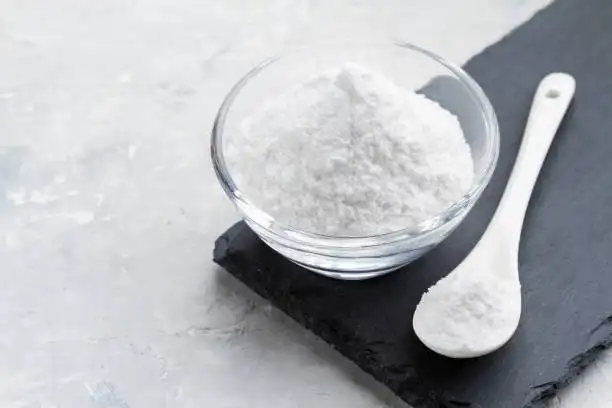D-Aspartic Acid and Tribulus Terrestris
Often referred to as D-Aspartic Acid (DAA), this substance is supposed to facilitate the creation of testosterone in our bodies, which has led it to be quite popular among athletes and bodybuilders. Often advertised for its ability to increase testosterone production naturally, Tribulus Terrestris is also thought to improve libido, promote muscle development, and support general health.
D-aspartic acid is considered beneficial for boosting testosterone levels, contributing to its growing popularity among fitness enthusiasts and bodybuilders. Bulk powders d aspartic acid are generally taken orally, recognized for their potential ability to improve athletic performance and promote muscle gain. Conversely, Tribulus terrestris is an herb used in traditional medicine for centuries.

D-aspartic acid (often abbreviated as DAA) is believed to aid the body's production of testosterone, contributing to its widespread use among individuals involved in athletics and bodybuilding. Frequently marketed as a natural method to increase testosterone levels, Tribulus Terrestris is also thought to boost sexual desire, foster muscle growth, and enhance overall well-being.
D-aspartic acid is acknowledged for its potential role in boosting testosterone levels, driving interest among fitness enthusiasts and bodybuilders alike. D-aspartic acid powder is typically consumed orally, recognized for its capacity to potentially improve athletic performance and muscle growth. Conversely, Tribulus terrestris is a herb that has been used in traditional medicine for many years.
The Potential Benefits of Combining D-Aspartic Acid and Tribulus
While there's been little scientific investigation into combining bulk d aspartic acid with Tribulus terrestris, certain individuals have noted favorable outcomes by using these two supplements concurrently. The potential benefits of this combination may include:
- Increased testosterone aid: Both substances are thought to impact testosterone production, possibly resulting in a cooperative outcome.
- Improved athletic performance: The combination might contribute to increased strength and endurance during workouts.
- Better muscle growth and recovery: D-Aspartic acid's potential to support protein synthesis, combined with Tribulus's purported benefits for muscle health, could lead to improved gains and faster recovery.
- Increased libido: Tribulus is often associated with improved sexual function, which may complement D-Aspartic acid's hormonal effects.

Safety Considerations and Dosage Recommendations
D-Aspartic acid and Tribulus Terrestris are typically deemed safe by many for generally well-adults, but certain considerations should be kept in mind:
- Initiate with smaller amounts: When combining new supplements for the first time, it's advisable to begin with low doses of both substances and incrementally adjust based on tolerability.
- Monitor for side effects: Pay attention to how your body responds. Some users report mild side effects such as gastrointestinal discomfort or headaches when taking these supplements.
- Cycling: Many users choose to cycle their supplement intake, taking breaks between periods of use to prevent potential tolerance build-up.
- Quality matters: Ensure you're using high-quality D-Aspartic acid powder and Tribulus supplements from reputable sources to minimize the risk of contaminants or adulterants.
- Seek medical advice: Before embarking on a new supplement routine, particularly when using combinations of different substances, consulting with a healthcare practitioner or a certified nutritionist is recommended.
Typical dosage ranges for D-Aspartic acid powder are between 2-3 grams per day, while Tribulus dosages can vary widely, often ranging from 250-1500 mg daily. Nonetheless, these are standard recommendations, recognizing that individual requirements might differ according to elements like physical size, fitness objectives, and existing health conditions. A note on long-term supplementation: The impacts of prolonged usage of these supplements, especially when used together, are not fully explored.
When contemplating D-Aspartic acid powder or Tribulus Terrestris, remember that supplements should augment a healthy lifestyle encompassing balanced nutrition and regular exercise routines. These substances aren't instant solutions; they function best when integrated into an overall strategy for health and fitness.
Moreover, being aware of potential interactions with existing medications or other supplements is essential. For instance, individuals taking blood pressure medication or diabetes treatments must proceed cautiously and consult their healthcare professional before incorporating these supplements into their routine.

While the amalgamation of D-aspartic acid and Tribulus may present benefits for some users, approaching supplementation requires careful consideration and realistic expectations. The scientific backing for their usage, particularly when combined, is still developing, necessitating further research to elucidate their effects and ideal usage patterns. For those looking into innovative biotechnology products like D-Aspartic acid powder or others, HSF Biotech provides a comprehensive range of high-quality supplements and ingredients.
Conclusion
To sum up, combining Tribulus terrestris with D-Aspartic Acid may be feasible and might yield advantages for certain individuals provided it is done with careful consideration and informed judgment. Always prioritize your safety by beginning with modest doses and observing your body's reaction. Keep in mind that supplements should complement rather than replace a balanced lifestyle of proper diet and regular exercise.

Our team can offer comprehensive information on the nature, physical properties, and potential uses of d aspartic acid - an amino acid derivative that typically presents as a white, crystalline powder with high water solubility. Notably, it is stable under standard storage conditions and is recognized for its role in supporting various biological processes related to hormone regulation and protein synthesis. At HSF Biotech, we are committed to producing top-quality D-Aspartic Acid powder that adheres to strict quality controls, ensuring our customers receive a high-purity product suitable for research or integration into their formulations.
If you're interested in learning more about D-Aspartic acid powder or other biotechnology products, we invite you to reach out to us at aaron@healthfulbio.com.

